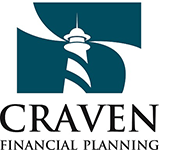Life insurance for the professional corporation


By William Craven BA, CFP, EPC
Why Life Insurance is Essential for Professional Corporations
For professionals in Canada who have incorporated their practices—whether in law, medicine, accounting, or engineering—integrating life insurance into your financial strategy is not just a good idea; it’s essential. Life insurance for professional corporations in Canada offers vital protection for your business, your family, and the long-term financial health of your corporation.
Protecting Your Business
Your professional practice is more than just a job—it’s a business that you’ve worked hard to build. Life insurance serves as a critical safeguard for this business. If something unexpected were to happen to you or a key partner, the insurance proceeds can be used to cover outstanding debts, fund buy-sell agreements, and manage the costs of transitioning the business. This ensures that the practice can continue to operate smoothly, without the financial burden that might otherwise threaten its stability.
Supporting Your Family
One of the most important roles life insurance plays is in securing the financial future of your family. By holding the policy within your professional corporation, the death benefit can be distributed in a tax-efficient manner, providing your loved ones with the financial support they need. This not only helps maintain their standard of living but also offers you peace of mind, knowing that they are protected.
Securing Long-Term Financial Health
Incorporating life insurance into your professional corporation’s strategy also supports the long-term health and growth of the business. Permanent life insurance policies, for example, offer an investment component that grows tax-free within the policy. This can serve as an additional asset for the corporation, providing funds that can be used for future investments, expansion opportunities, or as a financial buffer during challenging times.
William Craven emphasizes the strategic importance of life insurance in ensuring the continuity and success of professional corporations:
“Life insurance is more than just a safety net—it’s a crucial part of a comprehensive financial plan. It protects your business, secures your family’s future, and supports the long-term success of your corporation. By incorporating life insurance, you’re investing in the stability and prosperity of your practice.”
By recognizing the full value of life insurance, you can make informed decisions that protect your present and future, ensuring that your professional corporation continues to thrive for years to come.
Tax Benefits of Corporate-Owned Life Insurance
When it comes to financial planning for professional corporations, the tax advantages of corporate-owned life insurance in Canada are significant. By holding a life insurance policy within your corporation, you can leverage several tax benefits that enhance both the efficiency of your financial strategy and the overall value of your business.
Paying Premiums with Lower-Taxed Corporate Dollars
One of the primary tax benefits of holding life insurance within a professional corporation is the ability to pay premiums with corporate dollars, which are typically taxed at a lower rate than personal income. This means you can fund your life insurance policy more cost-effectively. Instead of using after-tax personal income, which might be taxed at a higher rate, you use corporate funds, allowing you to preserve more of your personal wealth.
Utilizing the Capital Dividend Account (CDA)
Another significant advantage of corporate-owned life insurance is the ability to use the Capital Dividend Account (CDA) to distribute the death benefit to shareholders tax-free. The CDA is a special account that allows certain types of income, such as life insurance proceeds, to be paid out as dividends without incurring additional tax.
When a corporation receives a life insurance payout, those funds can be credited to the CDA. This enables the corporation to distribute the proceeds to its shareholders without triggering personal tax, which is particularly beneficial for passing wealth to family members or business partners. It’s a powerful tool for maximizing the value of the life insurance policy and ensuring that the funds serve their intended purpose—protecting and providing for those who depend on the corporation’s success.
Types of Life Insurance Suitable for Professional Corporations
When considering life insurance for a professional corporation, it’s important to understand the different types of policies available and how they align with your business’s long-term goals. The two main categories are term life insurance and permanent life insurance, which includes whole life and universal life policies.
Term Life Insurance
Term life insurance is designed to provide coverage for a specific period, such as 10, 20, or 30 years. It is generally more affordable than permanent life insurance, making it an attractive option for those seeking coverage at a lower cost. However, it lacks an investment component and does not build cash value. Term life insurance may be suitable for younger professionals who need substantial coverage during the early stages of their career when cash flow might be limited.
Permanent Life Insurance
Permanent life insurance, which includes whole life and universal life policies, offers lifetime coverage and includes an investment component that grows tax-free within the policy. This type of insurance is often more expensive than term insurance but provides additional benefits that can be valuable for a professional corporation.
- Whole Life Insurance: This policy provides a fixed death benefit and has a cash value component that grows at a guaranteed rate. It’s a stable, predictable option, making it suitable for professionals who prefer a more conservative investment strategy within their corporation.
- Universal Life Insurance: This policy offers more flexibility than whole life insurance, allowing policyholders to adjust premiums and death benefits over time. The cash value component is tied to market performance, which can result in higher returns but also comes with more risk. Universal life insurance can be a good fit for professionals who are comfortable with a more dynamic investment approach.
How to Set Up Life Insurance in a Professional Corporation
Setting up life insurance within a professional corporation is a strategic process that involves several key steps. Whether you’re a doctor, lawyer, or accountant, integrating life insurance into your corporate financial plan can provide significant tax advantages and ensure the long-term stability of your business. Here’s a clear, step-by-step guide on how to set up life insurance for a professional corporation in Canada.
Step 1: Initial Consultation with a Financial Advisor
The first step in setting up life insurance within your professional corporation is to schedule a consultation with a qualified financial advisor, like William Craven. During this consultation, the advisor will assess your corporation’s financial health, your personal and professional goals, and the specific needs that life insurance could address.
Step 2: Policy Selection
Once your financial needs are assessed, the next step is to choose the appropriate life insurance policy. This involves deciding between term life insurance and permanent life insurance (such as whole life or universal life). The choice will depend on factors such as your budget, the stage of your business, and your long-term goals.
Step 3: Legal and Tax Considerations
After selecting the policy, it’s important to address the legal and tax considerations involved in holding life insurance within a professional corporation. This includes:
- Beneficiary Designation: Decide whether the corporation or individual shareholders will be the beneficiaries. Designating the corporation can provide additional tax advantages through the Capital Dividend Account (CDA).
- Premium Payments: Ensure that premiums are paid using corporate funds to maximize tax efficiency. This approach allows you to leverage lower-taxed corporate dollars instead of higher-taxed personal income.
- Policy Ownership: The corporation should be the owner of the policy to ensure that it receives the death benefit, which can then be distributed to shareholders through the CDA.
Consulting with a tax professional is essential at this stage to ensure compliance with Canadian tax laws and to optimize the tax benefits of your life insurance policy.
Step 4: Implementation and Regular Review
Once the policy is set up and the legal and tax aspects are in order, the next step is implementation. This involves finalizing the policy with the insurance provider and ensuring that premium payments are set up correctly through the corporation.
It’s also important to schedule regular reviews of your policy. As your business grows and your personal circumstances change, your life insurance needs may evolve. Regular check-ins with your financial advisor can help ensure that your policy continues to meet your goals.
Consulting William Craven
Setting up life insurance within a professional corporation can be complex, but with the right guidance, it can provide substantial benefits. William Craven has extensive experience in helping professionals navigate this process. His expertise ensures that your life insurance policy is not only set up correctly but also fully aligned with your long-term financial strategy.
Maximizing Wealth with Corporate Life Insurance
Integrating life insurance into a broader wealth management strategy is a powerful way for professional corporations to not only protect their assets but also to enhance long-term wealth preservation. Wealth preservation using life insurance in Canada involves utilizing life insurance policies as tax-efficient investment vehicles and essential tools in succession planning. Here’s how life insurance can serve as a cornerstone of your wealth management strategy.
Using Life Insurance as a Tax Shelter
One of the significant benefits of permanent life insurance policies, such as whole life or universal life, is the ability to accumulate cash value within the policy on a tax-deferred basis. This means that the growth within the policy is not subject to annual taxation, unlike other investment vehicles. For professional corporations, this feature allows funds to grow more efficiently, preserving wealth that can be accessed or leveraged at a later date.
The cash value within these policies can be used for various purposes, such as:
- Collateral for Business Loans: The accumulated cash value can be used as collateral to secure business loans, providing liquidity for the corporation without needing to sell off other assets.
- Investment Opportunities: Funds within the life insurance policy can be accessed to take advantage of investment opportunities that arise, all while enjoying the tax-sheltered growth of the remaining cash value.
- Tax-Efficient Withdrawals: In certain situations, funds can be withdrawn or borrowed against the policy with minimal tax implications, offering more flexibility.

Role in Succession Planning
Life insurance also plays a critical role in succession planning for professional corporations. As business owners plan for retirement or the eventual transfer of their business to successors, life insurance can provide the liquidity needed to facilitate a smooth transition.
Additionally, life insurance proceeds can be used to equalize inheritances among heirs, especially when some are involved in the business, and others are not. This ensures that the corporation can continue operating without internal conflict, preserving both the family’s wealth and the integrity of the business.
By leveraging William Craven’s expertise, professionals can unlock the full value of life insurance within their corporations, ensuring that their wealth is preserved and their business remains strong for future generations. For those looking to maximize their wealth management strategy, consulting with William Craven can provide the insights needed to make life insurance a key component of long-term financial planning.
Professional Corporation Financial Strategy
Incorporating life insurance into your professional corporation’s financial strategy is not just about protection; it’s about enhancing your business’s long-term stability, maximizing tax efficiency, and ensuring a smooth succession plan. Whether you’re looking to safeguard your business, support your family, or preserve wealth, life insurance offers a versatile tool that can be tailored to meet your unique needs.
By integrating life insurance within your corporation, you can take advantage of lower-taxed corporate dollars, use the Capital Dividend Account to distribute tax-free benefits, and even leverage your policy as a tax shelter or succession planning tool. The benefits are clear: more efficient use of resources, enhanced financial security, and a robust plan for the future.
William Craven is dedicated to helping professionals like you make the most of these opportunities. With over 31 years of experience, William understands the intricacies of corporate financial planning and can guide you through the complexities of selecting and setting up the right life insurance policy for your corporation.
“Life insurance is a cornerstone of any comprehensive financial plan for a professional corporation. It offers protection, tax advantages, and wealth preservation—all critical components of long-term success,” says William.
To explore how life insurance can be tailored to your specific needs and ensure your professional corporation thrives well into the future, schedule a consultation with William Craven today. His expertise and personalized approach will help you unlock the full potential of life insurance in your financial strategy.
FAQ: Life Insurance for Professional Corporations
Life insurance within a professional corporation allows the corporation to own the policy and pay the premiums using corporate dollars, which are taxed at a lower rate than personal income. The corporation can also receive the death benefit, which can be distributed to shareholders tax-free through the Capital Dividend Account (CDA).
Yes, a corporation can be the beneficiary of a life insurance policy. This arrangement is common in corporate-owned life insurance, where the death benefit is paid to the corporation and can be used for business continuity, buy-sell agreements, or distributed to shareholders tax-free.
Generally, life insurance premiums are not tax-deductible, whether paid personally or by a corporation. However, the advantage lies in paying premiums with lower-taxed corporate dollars, making it a more tax-efficient option compared to using personal after-tax income.
The Capital Dividend Account (CDA) is a special account within a Canadian corporation that allows certain types of income, including life insurance proceeds, to be distributed to shareholders tax-free. When a corporation receives a life insurance payout, it can credit these funds to the CDA and pay them out as a tax-free dividend.
Corporate-owned life insurance can be a valuable tool for wealth management by offering tax-deferred growth within the policy, providing funds for business opportunities or as collateral for loans, and playing a crucial role in succession planning by funding buy-sell agreements or equalizing inheritances among heirs.
The choice between term and permanent life insurance depends on your business’s needs and goals. Term life insurance is more affordable and suitable for covering short-term liabilities, while permanent life insurance (like whole or universal life) offers lifetime coverage and a cash value component that can support long-term wealth accumulation.
Setting up life insurance in a professional corporation involves consulting with a financial advisor, selecting the appropriate policy (term or permanent), and addressing legal and tax considerations such as ownership structure and beneficiary designation. Regular reviews are also important to ensure the policy continues to meet the corporation’s needs.
Transferring a personal life insurance policy to a corporation can trigger tax consequences, especially if the policy has accumulated cash value. The transfer is considered a disposition for tax purposes, and any gain may be taxable. Consulting with a tax professional is essential to navigate these implications.
Yes, life insurance is often used to fund buy-sell agreements in professional corporations. The death benefit provides the surviving shareholders with the necessary funds to buy out the deceased partner’s shares, ensuring a smooth transition and continued operation of the business.
Life insurance plays a critical role in succession planning by providing liquidity to cover taxes, fund buy-sell agreements, and ensure that the business can continue operating smoothly after the death of a key shareholder. It can also be used to equalize inheritances among heirs, particularly when some are involved in the business and others are not.
Mutual funds, approved exempt market products and/or exchange traded funds are offered through Investia Financial Services Inc.
The comments contained herein are a general discussion of certain issues intended as general information only and should not be relied upon as tax or legal advice. Please obtain independent professional advice, in the context of your particular circumstances. This article was prepared by Bill Craven who is an Investment Funds Advisor at Craven Financial Planning a registered trade name with Investia Financial Services Inc., and does not necessarily reflect the opinion of Investia Financial Services Inc. The information contained in this presentation comes from sources we believe reliable, but we cannot guarantee its accuracy or reliability.
Related Articles

ETF Funds vs ETFs in Canada
ETF Funds vs ETFs in Canada: What’s the Real Difference—and Why It Matters to Your Money By Bill Craven B.A.,CFP,EPC “It’s easy to assume ETF Funds and ETFs are interchangeable. After all, they share the same acronym. But dig just a little deeper, and the differences can have a major

Disability Insurance for Corporation Owners in Ontario
by Bill Craven Protecting Your Business in a Crisis: Disability Buy-Sell & Wage Loss Plans for Ontario Corporation Owners Tailored insights for incorporated professionals, medical practices, and business partnerships. What would happen to your business if you suddenly couldn’t work? For many incorporated professionals, it’s a question they’ve never
William (Bill) Craven, BA, CFP, EPC, is a seasoned financial expert with over three decades of experience in helping Canadians plan for the future with confidence. As the founder of Craven Financial Planning, Bill has built a reputation for delivering tailored financial planning and insurance strategies that align with each client’s unique goals, tax considerations, and long-term security.
Based in Chatham, Ontario, Bill is a Certified Financial Planner (CFP), Elder Planning Counsellor (EPC), and a Mutual Fund Representative with Investia Financial Services Inc. He provides trusted guidance on RRSPs, TFSAs, retirement income planning, life and disability insurance, estate bonds, and tax-efficient investment solutions.
Recognized for his integrity, personal service, and depth of knowledge, Bill works with individuals, families, and business owners throughout Southwestern Ontario to build financial confidence through personalized, values-based planning.
